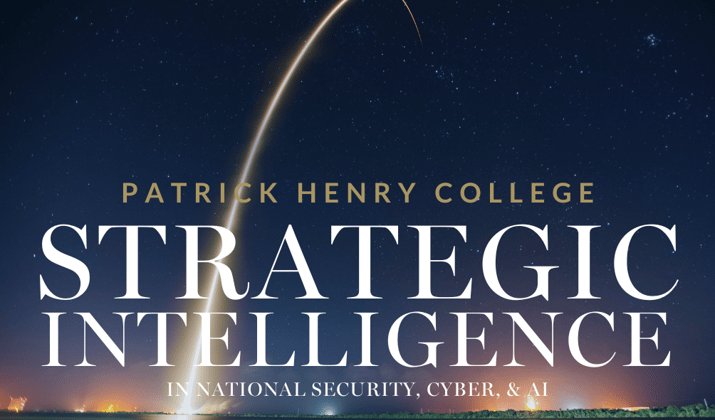“One of PHC's largest strengths of the Strategic Intelligence in National Security program at Patrick Henry College is that it teaches its students how to think about thinking,” Colonel Gordon Middleton, director of PHC’s Strategic Intelligence program, said. This means that cyber students at PHC benefit from the deeper instruction and range of liberal arts programs that other Christian colleges don’t provide.
Colleges like Regent University and Cedarville University offer a Bachelor of Science in Cybersecurity. PHC offers a Bachelor of Arts in Strategic Intelligence in National Security with a Cyber and AI track. Middleton explained that a B.S. is very “hard skills” focused. “A B.S. might matter for someone who's laser-focused on becoming something specific like a programmer,” he said. “But PHC's strength is in the breadth of its education.” Since hard skills can be learned on one’s own time, such as through a special project, cyber classes at PHC focus more on the thinking element.
Strategic Intelligence (SI) classes at PHC follow the classical model of the Trivium, a method of learning that advances in three elements (Grammar, Logic, and Rhetoric) from facts to application through discussion.
For example, in the SI core class Cyber Domain Fundamentals, students learn the facts about common methods of cyber attack and of cyber defense. But they also consider how the U.S. might use cyber offensively as a legitimate national security strategy, and they discuss the prospects for the defense of U.S. critical infrastructure from a technical and policy point of view.
The Cyber and AI Track of PHC’s SI major also provides both technical and ethical preparation. In Data Science Tools, students learn to define Python programming objects and to identify data structures. But they also learn how to critique programming approaches, as well as how to analyze a real-world problem that can be addressed programmatically.
Introduction to AI and Machine Learning, another class in the Cyber and AI track, also utilizes the Trivium model. Under the “Grammar” category, for example, students learn to visualize and pre-process data for machine learning. Under the “Logic” category, one skill they learn is to measure the accuracy of a model against a test dataset and assess the impact such technologies have had on national security and intelligence applications. Under the “Rhetoric” category, an example discussion is how advances in AI could shape society’s worldview.
In addition to teaching students how to think, another distinctive feature of PHC's SI program is its Christian perspective. The Data Science Tools class, for example, holds the perspective that we glorify God when we use the resources He has given us to do the work he has assigned us (1 Peter 4:10). The Intro to AI and Machine Learning class holds the perspective that humans will never come close to understanding or replicating all of God’s creative abilities (Isaiah 55:8-9).
Other benefits to the SI program at PHC include opportunities to become personally invested in cyber activities, such as working for PHC’s Help Desk, as well as gaining real-life experience through special projects and internships.
Additionally, the SI Cyber and AI track prepared PHC students to win 1st place in the final round over Air Command and Staff College and West Point in the Atlantic Council's 2023 Cyber 9/12 Strategy Challenge in Miami, FL. The PHC team also won two special awards for Best White Paper and for Best Teamwork. PHC finished ahead of teams from much larger universities such as Stanford, a combined MIT-Harvard team, as well as the University of Texas-San Antonio, UC-Berkeley, and Florida International University (who hosted the Miami competition).
High schoolers interested in further learning about PHC’s S.I. program should consider PHC’s Strategic Intelligence teen camp this summer!
--
Patrick Henry College exists to glorify God by challenging the status quo in higher education, lifting high both faith and reason within a rigorous academic environment; thereby preserving for posterity the ideals behind the "noble experiment in ordered liberty" that is the foundation of America.

.png?width=800&height=400&name=PHC%20(1).png)







